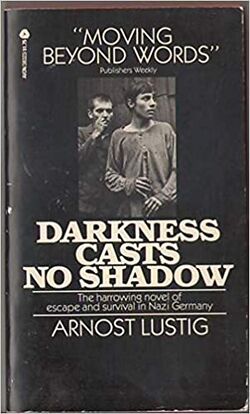Arnost Lustig (M / Czechia, 1926-2011), Holocaust survivor
Arnošt Lustig (M / Czechia, 1926-2011), Holocaust survivor
- KEYWORDS : <Theresienstadt> <Auschwitz> <Buchenwald> <Death March>
Biography
Arnost Lustig was born in Prague. As a Jewish boy in Czechoslovakia during World War II, he was sent in 1942 to the Theresienstadt concentration camp, from where he was later transported to the Auschwitz concentration camp, followed by time in the Buchenwald concentration camp. In 1945, he escaped from a train carrying him to the Dachau concentration camp when the engine was destroyed by an American fighter-bomber. He returned to Prague in time to take part in the May 1945 uprising against the German occupation.
After the war, he studied journalism at Charles University in Prague and then worked for a number of years at Radio Prague. He was one of the major critics of the Communist regime in June 1967 at the 4th Writers Conference, and gave up his membership in the Communist Party after the 1967 Middle East war, to protest his government's breaking of relations with Israel. However, following the Soviet-led invasion that ended the Prague Spring in 1968, he left the country, first to Yugoslavia, then Israel and later in 1970 to the United States. After the fall of communist regime in Czechoslovakia in 1989, he divided his time between Prague and Washington, D.C., where he continued to teach at the American University. After his retirement from the American University in 2003, he became a full-time resident of Prague, where he was honored as one of the greatest contemporary Czech writers.
Book : "Darkness casts no shadow" (1976)
"During WWII it was not unusual for "death trains" to cross Europe loaded with thousands of starving Jews. Having spent his teenage years in concentration camps, Arnost Lustig found himself on one of these transports in 1945, on the way to his own death. Along with a close friend, who was also a teenager, he made an incredibly daring escape. This is the story of that escape, and the weeks that the two boys spent in the dark forests of Germany trying to survive against hunger and cold, to avoid capture by the Germans, and to return to their native Prague. On the psychological plane, the book explores the subconscience minds of the boys as they experience extreme fear, starvation, and physical exhaustion in their desperate flight toward freedom against such incredible odds."--Publisher description.
